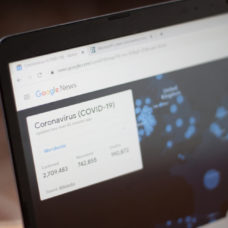Last year, Google launched a new video series on its Webmaster YouTube Channel called SEO Mythbusting.
The video series involves developer advocate at Google, Martin Splitt, speaking with various developers and SEOs about misconceptions. Also, it provides a way for Google to address some frequently asked questions.
As in previous episodes, the latest episode of SEO Mythbusting also featured Splitt. This time, he was talking to the SEO Director at Path Interactive, Lily Ray.
Together, they addressed some widespread content concerns in SEO. These include:
- Update old content or create new ones?
- How much content should a website have?
- Does producing new content help my performance on Google?
- Should you update older pieces of content?
Here’s a quick recap of some questions and answers.
Addressing the Common Content Concerns in SEO
1. Update Old Content or Create New Ones?
Ray’s first question was about updating the same content each year versus creating a new one. If a publisher routinely writes about the same topic annually, should they create new articles or update the old ones, she asked.
In response, Split recommends updating existing posts if there’s an incremental change to be made between the period.
However, you don’t want to create another article with similar content. Google may view it as a duplicate.
2. How Much Content Should a Website Have?
Split pointed out that you shouldn’t produce content just for the sake of creating content. It would be best if you also considered the topic and your audience.
For example, blogs about specific topics can only write so much before “rambling on” with article after article.
On the other hand, industrial blogs where new information comes out all the time may have to produce content regularly. Also, new blogs that have to cover as many happenings have to do the same.
3. Does Producing new Content Help My Performance on Google?
“Not necessarily.” Publishing new content is not a sitewide ranking factor, said the Google developer advocate.
Updating your blogs with content that reports on current events and development can enhance your reputation with visitors. It could also be a way to increase your brand awareness.
However, as Splitt pointed out, it doesn’t change your search performance or ranking. It’s just providing something relevant and useful.
4. Should You Update Older Piece of Content?
Splitt recommends updating an older article if something significant has changed.
But if that’s not the case, consider publishing new and different content. Then, link the old piece to the new one.
“This is not about necessarily about search relevancy or anything,” said Splitt.
Instead, it’s about helping users understand that the site has other interesting content and keeping readers on your website.
Martin Splitt also discussed underperforming content, word count, auto-generated content, and canonicalization.
Watch the full video here:



















Comments (0)
Least Recent